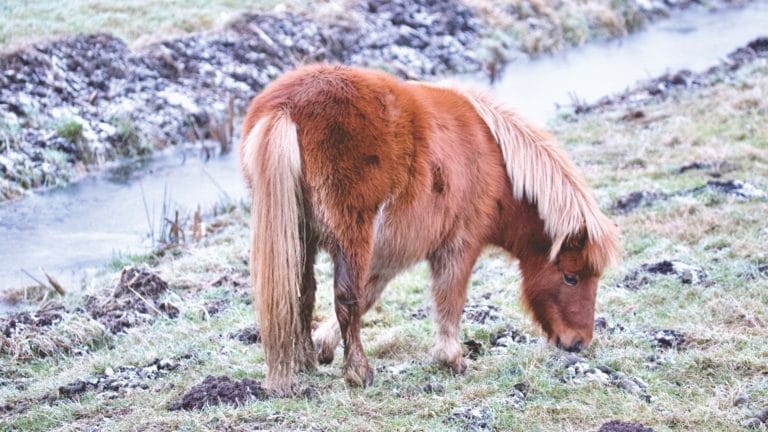Many horses with Cushing’s disease (also called pituitary pars intermedia dysfunction, PPID) also have insulin resistance (IR), though not all do. Horses with PPID should be fed a primarily forage diet that will promote ideal body condition score and avoid obesity, which will worsen IR. Concentrates should be fed only as needed to maintain moderate body condition.
Feeding small, frequent concentrate meals produces less deviation in insulin and glucose concentrations and is less likely to complicate IR. Feeds containing greater than 3% molasses and 20% non- structural carbohydrates (NSC) should be avoided if there is evidence of IR. Pelleted feeds that are higher in fibre (greater than 10%) and fat (greater than 5%) can be fed instead of sweet feed to provide additional dietaryxico 1 energy.
Textures or sweet feeds tend to contain higher levels of molasses and higher NSC content relative to the starch content in grains. While senior feeds are often fed to horses with PPID, these may contain high amounts of molasses and NSC. The most popular feed for older horses in the United States has a similar glycemic index to oats, so it may not be the most desirable feed to use.
Whenever possible, horses with PPID should be allowed turnout time, as exercise improves insulin sensitivity. Forced exercise or work should be reserved for horses that do not have active laminitis and are free of musculoskeletal disorders.
Owners should be aware that pasture grasses can be unusually high in NSC at some times of the year, especially spring and late summer or early autumn when rains trigger growth. Insulin concentration is positively associated with increased carbohydrate content in pasture grass. PPID can worsen IR in susceptible horses, and overconsumption of lush grass can result in laminitis.
Adrenocorticotropic hormone (ACTH) concentrations have a seasonal variation, reaching their highest levels in late summer and autumn in the northern hemisphere. Glucose and insulin concentrations may also rise in autumn, a factor that may combine with a peak in ACTH to contribute to an increased risk of pasture-associated laminitis risk during this season.
Horses with PPID suffer immune suppression and oxidative stress, so attention needs to be paid to the intake of nutrients that boost immunity or contribute to antioxidant function. These include vitamins A, C, and E along with copper, zinc, manganese, selenium, and omega-3 fatty acids. Horses being maintained on forage alone are likely to need supplementation with these nutrients.

